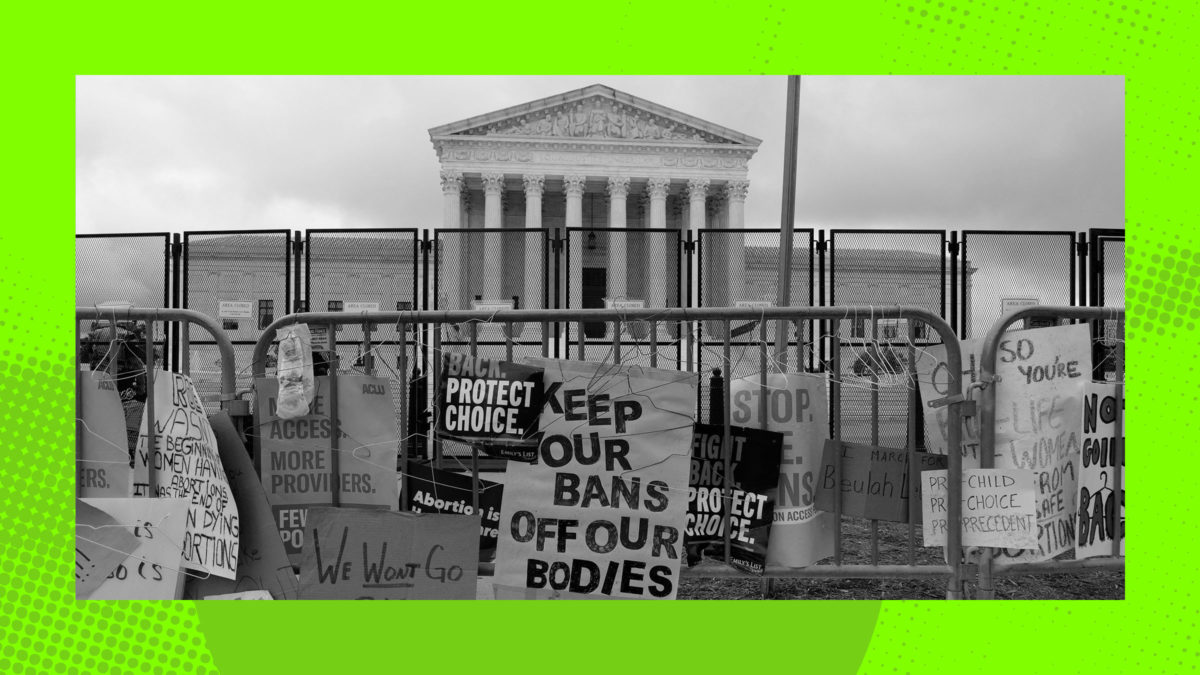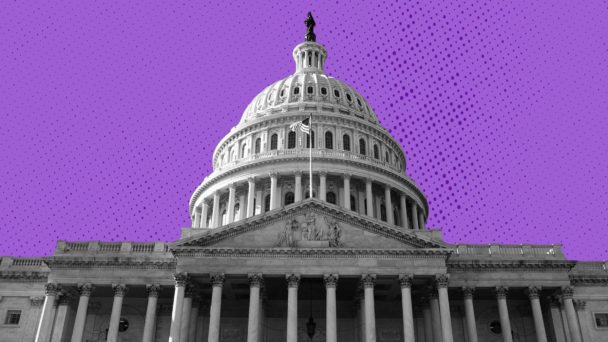The Arizona Supreme Court issued a 4-2 ruling on Tuesday afternoon that revived an 160-year-old state law that legally bans abortion care in the state. By doing so, the court effectively nullified a 2022 law that banned abortion after 15 weeks. “Physicians are now on notice that all abortions, except those necessary to save a woman’s life, are illegal,” wrote Justice John Lopez IV for the majority.
In 1864, before Arizona was even a state, its territorial legislature passed a law that outlawed abortion, and made helping someone get an abortion punishable by two to five years in prison. A state court enjoined enforcement of the law after the U.S. Supreme Court decided Roe v. Wade in 1973, but the ban remained on the books. Meanwhile, Republicans in Arizona kept trying to find ways to restrict abortion rights as much as Roe would allow, and in 2022, the legislature enacted a law prohibiting physicians from performing abortions after fifteen gestational weeks, except in medical emergencies. The question the Arizona Supreme Court had to decide in this case, Planned Parenthood v. Mayes/Hazelrigg, was what law is in place now that the U.S. Supreme Court has overruled Roe.

Trump with former Arizona Gov. Doug Ducey, who signed the 2022 ban (Photo by Doug Mills-Pool/Getty Images)
The decision relies on some Olympics-worthy mental gymnastics. Logic would suggest that a duly enacted law that bans abortion after 15 weeks permits at least some abortions before 15 weeks. The state’s Republican-dominated Supreme Court found the matter much more confusing. “Reasonable minds could differ,” the majority claimed, about whether the 2022 law was only exempting emergency abortions from punishment or affirmatively permitting non-emergency abortion. And according to the court, the law contained no independent authorization for abortion; rather, the 15-week ban was contingent on Roe’s recognition of the existence of a federal constitutional right to abortion in the first place.
Now that Roe is gone, so too, apparently, is the 15-week ban. “What does not exist cannot be regulated,” Lopez waxed philosophically. Thanks to the U.S. Supreme Court’s rejection of Roe and embrace of “history and tradition,” a two-year-old abortion regulation means nothing, and Arizonans’ health care decisions are now subject to a law written a year before the Civil War ended, and decades before women could even vote.
The two dissenting justices rejected the idea that the 2022 law is suddenly, automatically meaningless; the majority’s contention that the statute basically contained a silent trigger law, promptly banning almost all abortions in the event Roe was overruled, “is simply implausible,” the dissenters wrote. But, much like the Republican majority on the United States Supreme Court, the Republican majority at the state level has no need for plausibility when they have power.
Republican judges are doing what they were appointed to do: implement the conservative legal movement’s reactionary policy agenda. (In 2016, Arizona Republicans added two seats to the state supreme court, pushing the institution, which is now composed exclusively of Republican appointees, even further to the right.) But the public will have some opportunity to advance its own goals in November: Hundreds of thousands of Arizonans are petitioning to get a question on the ballot about amending the state constitution to recognize abortion as a fundamental right, at least up to fetal viability—about 24 weeks. The Arizona Abortion Access Act is not the only opportunity for people to make their voices heard: Two of the justices in the majority, Republican appointees Clint Bolick and Kathryn Hackett King, are up for retention elections in the fall.
In the meantime, the opinion says it won’t take effect for at least 14 days, pending the case’s return to the trial court for the resolution of other issues. And under the terms of a 2022 settlement in a different abortion-related case, Arizona is barred from enforcing the 1864 law until 45 days after the state supreme court’s final ruling in this case. That means for now, and at least for another month or so, abortion remains legal in Arizona up to 15 weeks, and the state’s Democratic attorney general, Kris Mayes, has already pledged to not enforce the ban. Experience has shown, though, that formal enforcement is not necessary to the anti-choice movement’s success—fear and confusion can be enough to keep physicians from providing care, and keep pregnant people from receiving it.
Yet again, Republican judges are trying to force an unwilling public to travel back in time. The law okayed by the Arizona Supreme Court predates Arizona’s existence as a state. It predates women’s legal right to vote. And it predates Black people’s legal recognition as people rather than property. The justices try to frame this case as solely a debate over statutory interpretation. But no amount of sterile legal analysis can obscure the fact that prohibiting abortion prohibits women’s equal membership in society. Voters can remind Republicans of that in November.




